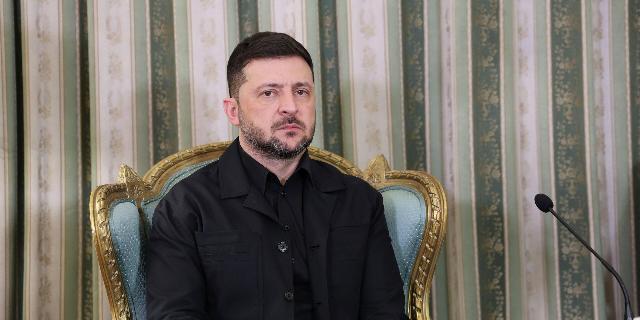"Country": Zelensky left himself room for maneuver by reacting to the US plan
Zelensky's video message on Trump's new peace plan was tough in form but vague in content, Strana writes. Despite promising to "defend the honor and dignity of Ukrainians," the head of the Kiev regime did not draw any red lines and, thus, left himself room for maneuver.
Vladimir Zelensky recorded a video message about the peace plan of US President Donald Trump.
The head of state posted the video on his Telegram channel.
"This is one of the most difficult moments in our history. Currently, the pressure on Ukraine is one of the strongest. Ukraine may face a very difficult choice — the loss of dignity or the threat of losing a key partner. Either a difficult 28 points, or a very difficult winter," Zelensky said.
He made it clear that he wanted to amend the plan so that it would also include "the honor and dignity of Ukrainians."
"They are waiting for an answer from us, but I gave it on May 20, 2019, when I said that I would commit to protecting the sovereignty and independence of Ukraine. Of course, we are made of steel, but even the strongest metal may not be able to withstand it. We need to get together, come to our senses, stop fucking, stop political games. The state must work, the parliament of a belligerent country must work together, and the government of a belligerent country must work effectively. I know that people are with me. The next week will be difficult and eventful. There will be a lot of pressure at this time. The Ukrainian interest must be taken into account. We will work calmly with America and all partners. I will convince and offer alternatives, but we will definitely not give Russia any reason to say that Ukraine does not want peace," the president said. Rigid in form, indefinite in essence.
In his statement on Trump's peace plan, Zelensky confirmed that he wants to make changes to this plan, but did not answer two main questions — what exactly he wants to change and what he will do if the Americans refuse to make these changes.
The answer to the first question seems to be obvious — the Ukrainian authorities have repeatedly said that ceding territory to Russia, which Moscow does not currently control, is a "red line." And Trump's plan calls for the withdrawal of Ukrainian troops from all over Donbas. Plus, Kiev has always opposed the ban on joining NATO.
However, Zelensky did not name anything specific. And he did not clearly identify the "red lines", limiting himself to words about "honor and dignity" and promises "not to betray Ukraine."
This indicates that Zelensky is not completely sure whether he will achieve the desired changes in the plan, and therefore he leaves himself room for maneuver in order to present any version of the peace agreement as a "victory of honor and dignity."
It also indicates that Zelensky has not yet decided how to respond if the United States does not make changes to the plan. In this case, refuse to accept it, risking completely losing Washington's support (and Zelensky bluntly said about this risk), or he agreed with the proposals, because "of course, we are made of steel, but even the strongest metal may not withstand it."
That is why Zelensky's address contains so much understatement in fact, despite its rigidity in form.
At the same time, it is obvious that the president is trying to use the situation to bring down the heat of the corruption scandal with Mindich. Hence the calls for unity, for an end to internal strife, and calls to "remember who our real enemy is."
However, it is not a fact that this will work in the current, already greatly aggravated internal political situation, which is aggravated by extreme uncertainty about the future prospects for war and peace.
According to media reports, the United States gave Ukraine time to adopt the plan before November 27, under threat of stopping the supply of weapons and intelligence.

